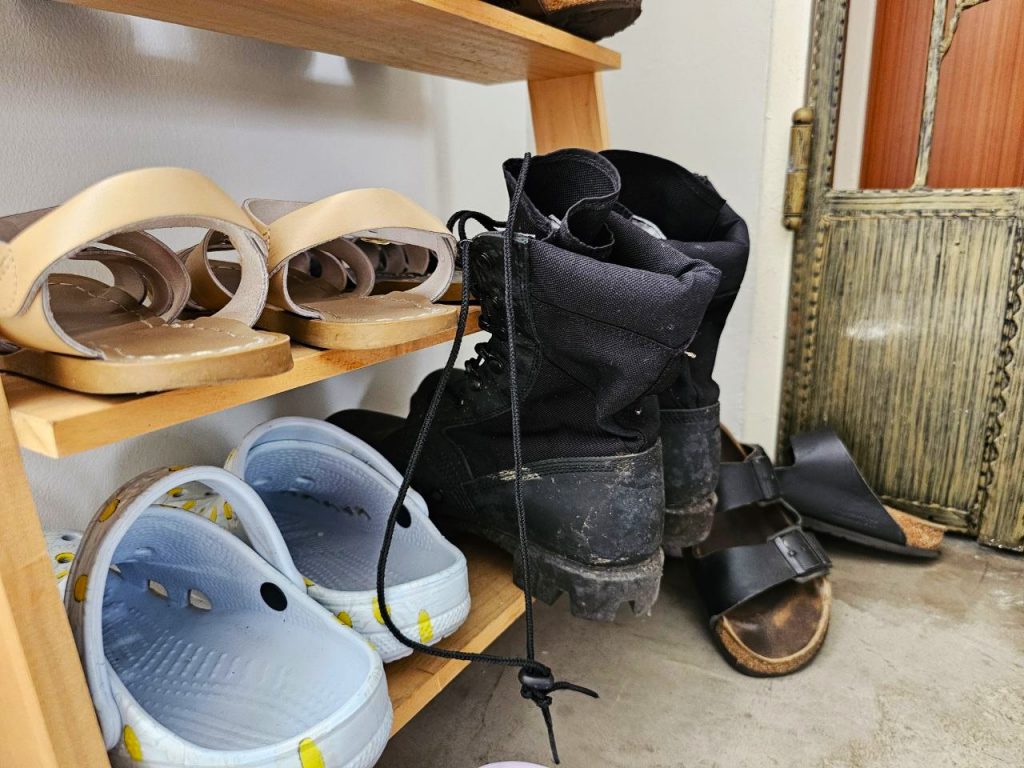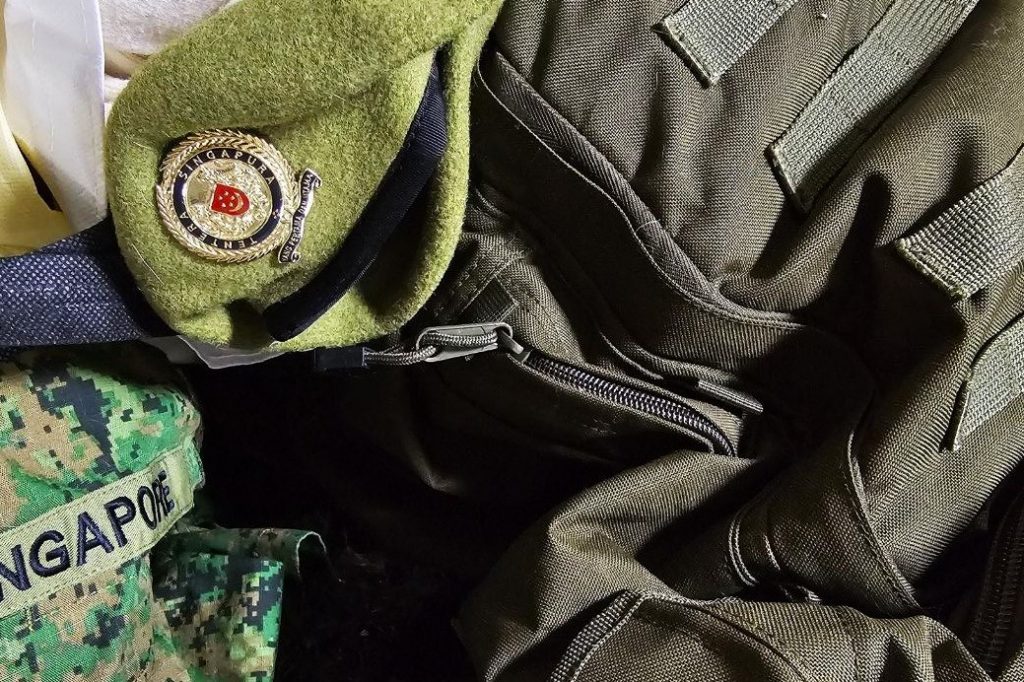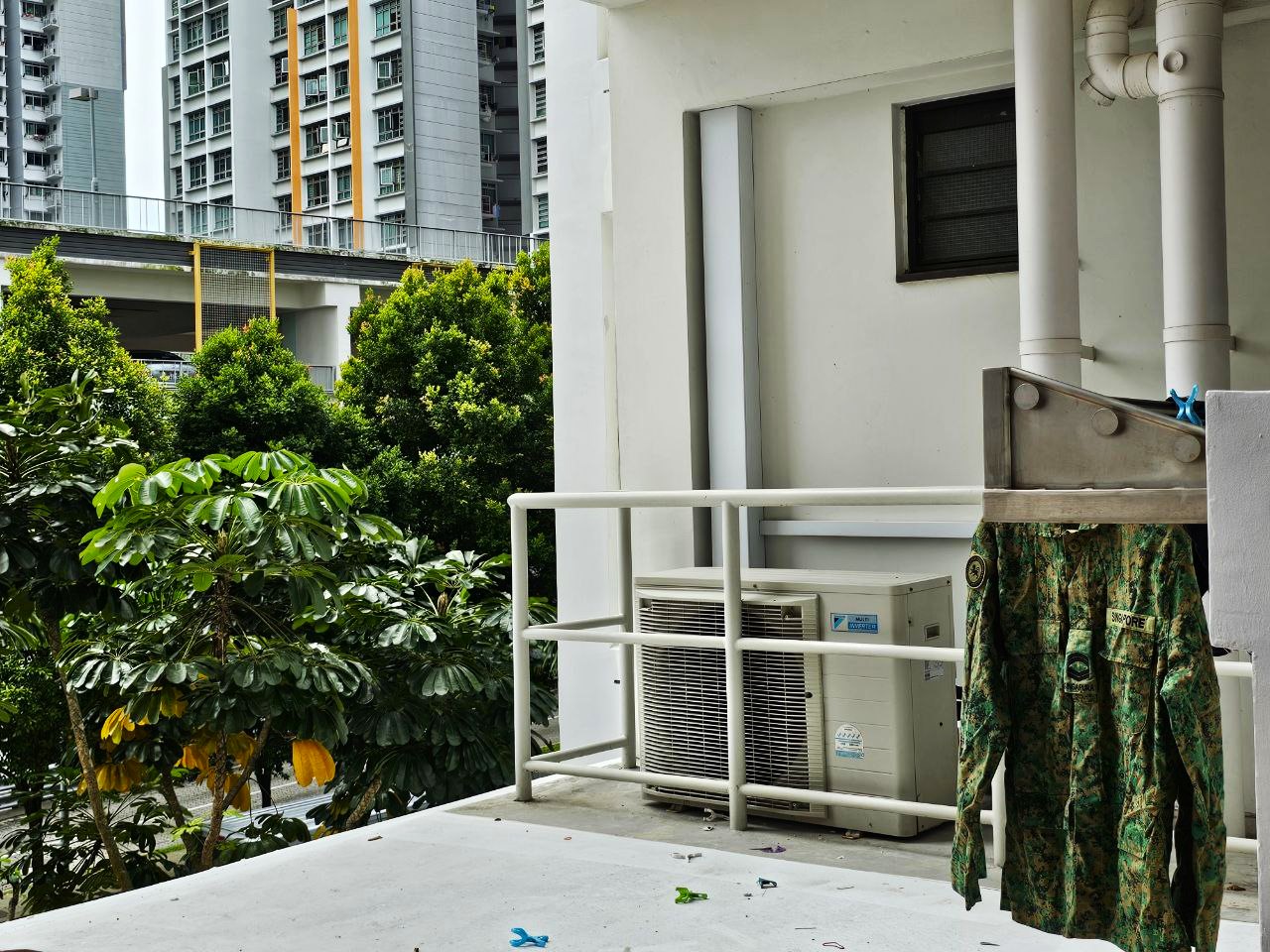All images by Andre Frois for RICE Media
Each year, Singaporean sons scramble to find boot garters that haven’t lost their elasticity, squeeze into uniforms that somehow feel tighter than before, and stand shoulder to shoulder with friends first met in days of supple skin and unbroken hairlines.
Drafted into National Service as wide-eyed youths—some might call us man-children—we’re bound not only to those two years but beyond. This includes ten years of ICT (In-Camp Training) and, for commissioned officers, obligations extending until the age of 50.
As years pass, the weight of work, family, and finances grows as we evolve into husbands, fathers, and leaders. ICT is meant to offer us a reprieve, a dedicated pause for our duty to country. But as anyone in their unpolished boots knows, reality differs: many of us handle work texts, emails, and ‘urgent’ messages even in this supposed break from the daily grind.
ICT becomes, perhaps paradoxically, a time for reflection. In the stillness of the musky barracks or muggy jungle, we usually have just enough headspace to step back and re-examine our relationship with work.
Singapore’s citizen-soldiers recognise the inescapable pull of our corporate responsibilities, wondering if we genuinely can (or even want to!) disconnect from the threads that bind us back to the working world.

“I think it’s simply unrealistic to ask motivated employees to switch off from work for a few weeks.
Many guys plan ahead and schedule work [for when we’re away], but we still have to implement protocols for when unexpected situations arise. In these cases, coworkers will have no choice but to contact me. Nonetheless, there might be online meetings that I must be on and work that can only be done by me, so I’ll still be constantly checking my phone. There have been times when I’ve requested permission to bring my laptop into camp.
ICT is jarring because Singaporean work culture overemphasises effort—Singaporean guys need to go for their annual ICT, but we are also expected to always contribute to Singapore Inc.”
— Gerald, 35
“I work in content marketing, so when I’m called up for ICT, it often requires me to prep all the content ahead of time and hand over any outstanding tasks to a colleague.
Keeping in mind that we don’t actually have anyone filling my role, this often means that somebody has to do double work just to cover for me. This is obviously bad for team morale. I’d feel bad, therefore I try not to hand any work over, which means I have to basically complete two weeks’ worth of work ahead of time.”
— Edmund, 29
“I’ve been contacted over issues at work, but honestly, I just ignored it and blamed it on the spotty network in the jungle. Of course, I also contacted my colleagues who are working on resolving the issue on the side to check in and see if everything is alright, even though there’s not much I can personally do.
Is it irresponsible for me to do that? Maybe. But I think that no issue should be that serious that everything crashes and burns once you take one person out of commission. If you’re running a company like that, maybe it’s time to rethink your structure.”
— Eugene, 41

“I’ve heard business owners or management-level guys brag to you that if they can juggle extra responsibilities before and during ICT, then their employees can and should too. I had a manager who was still actively engaging in the department group chat while he was away on ICT, basically relaying messages and checking on things.
It sets an unhealthy precedent. Everything went smoothly with or without his input—it was just wayang because those messages didn’t achieve much. Those messages made him seem involved and on top of things, but in reality, he was just replying to messages and asking yes/no questions.
This guy proclaimed, ‘Don’t worry, I will still be working in the jungle’. Calm down bro, we’ve got this; put a little trust in your team.”
— Dev, 39
“Plenty of people still do their work while on ICT, especially if they have internet access and little to no activities in camp. Usually, I’ll have to reassign work or move around the dates for my photo and video shoots, but the army gives plenty of notice.
Speaking as a small business owner, time spent in ICT can potentially harm your business, especially if you’re a one-man operation. I imagine the ICT experience is best for people in corporate work or civil service—a nice two-week break from the world, the wife, the kids—why not?”
— Yusuf, 39

“Besides handing over work, I also try to teach juniors how to perform my tasks. I don’t want people to say that I have a bad management style. I still have to attend to my work while I’m in camp, so I’ve realised the importance of training deputies to cover for me. If you can’t leave work for that ICT cycle, you should defer.
Even if MINDEF sends out a strong mandate for employers to not disturb employees during their ICT, they won’t be able to truly enforce it without employees implicating themselves.”
— Logesh, 29
“Honestly, I always bring work to ICT. ICT, along with many other things in Singaporean society, make me think deeply about work culture and my role at work. It’s easy for me to schedule time to do work during ICT, but those who work as relationship managers and sales leads might struggle more than I do to remove themselves from their day jobs.
It’s become routine for Singaporeans to work on their phones and laptops everywhere they go, including ICT. Last week, someone who saw me replying emails while having breakfast asked me if this practice was common. Perhaps work culture will get better when millennials take on leadership positions.”
— Suffian, 38

“We are sometimes swamped with work despite delegating some work to others. I had to ‘double work’ on weekends or after the high-key ICT when returning to work.
I was allowed to book out daily when my wife was pregnant and near full-term. The army is less tolerant of urgent work situations that are dealt with through phone calls, emails and WhatsApp in camp. I’ve had to take client complaint calls during ICT, but nothing too severe.
However, I also think we tend to overemphasise our own importance at work. If we accept that things at work are okay despite our absence, we might realise that we are dispensable. Things like ICT that disrupt workflow show how ultra-competitive Singaporean work culture is. Be very good at your job, or someone else will be doing it.”
— Mike, 41
“I spearhead high-value pitches, some of which have unfortunately overlapped with my ICT. Yes, the government financially compensates my employer while I’m away, but that money can’t necessarily replace client-vendor rapport.
If these pitches are unsuccessful, this will nonetheless be taken into consideration at my next appraisal. So, perhaps the government can lend more support to employers or emphasise to employers that our work responsibilities shouldn’t distract us from our ICT missions.”
— William, 34






